# forms
12 posts in `forms` tag
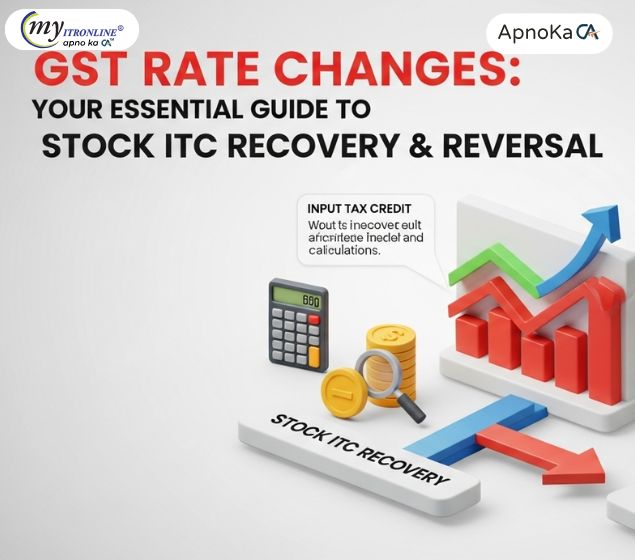
GST Rate Changes: Your Essential Guide to Stock ITC Recovery & Reversal
This blog post provides a comprehensive guide to the upcoming GST rate changes in India, effective 22 September 2025, focusing specifically on the implications for Input Tax Credit (ITC) on stock. It explains the new simplified tax slab structure (5%, 18%, 40% for luxury goods) and details how businesses should handle ITC for stock purchased before the changes, supplies made after the changes, and unsold old inventory. The post offers practical advice on identifying stock, claiming eligible ITC, reversing ITC where necessary, seeking manufacturer support, and maintaining audit-ready records to navigate this significant tax transition effectively.

Breaking: No Relief in GST, A Big Blow to the Indian Media Industry
This blog post analyzes the impact of the latest GST reforms on the Indian media industry. It highlights how, despite appeals from media and advertising groups, the sector received no significant relief regarding tax parity for digital publications, input tax credit access, or flexible tax payment timing. The article details the approved reforms that benefited other sectors and consumers, contrasting them with the ignored pleas of the media, leading to concerns about worsening the digital divide, liquidity pressure, and hindered cost recovery. It concludes that the lack of targeted reforms poses a major setback for innovation, job creation, and overall growth in the Indian media landscape.

CBDT's Game-Changer: Relaxing Black Money Rules for Taxpayer Relief
This blog details the recent changes by the CBDT in relaxing certain "black money" rules, aiming to provide significant relief to Indian taxpayers. It explains the rationale behind these changes, focusing on the rationalization of penalties, re-evaluation of "undisclosed" status, new opportunities for compliance, and a reduction in harassment and litigation. The article highlights who benefits from these relaxations, positions them within a broader shift towards trust-based taxation, and advises taxpayers on necessary steps to take.

States Push for Tough Steps to Stop Profiteering from GST Cuts
The GST Council is set to meet on September 3-4 to review GST 2.0 reforms. States want strict rules to prevent profiteering so that GST rate cuts actually benefit consumers. Key proposals include a temporary anti-profiteering law, consumer complaint platforms, and tighter monitoring of sensitive sectors. Businesses, however, warn about compliance costs and pricing disruptions.
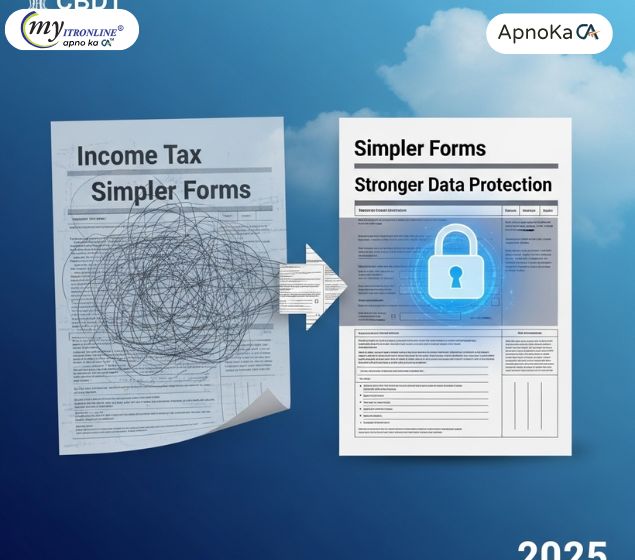
CBDT Overhauls Income Tax: Simpler Forms & Stronger Data Protection by 2025
The Central Board of Direct Taxes (CBDT) is implementing significant changes to income tax forms and rules, effective April 2025, following the new Income Tax Act of 2025. The initiative focuses on simplifying tax filing through smart, pre-filled forms, drastically reducing the number of forms from 200 to under 100, and ensuring robust protection for digital data collected during tax procedures. While new ITR forms are slated for 2027, immediate efforts are on TDS, TCS, advance tax, and exemption forms. These reforms aim to enhance transparency, ease compliance, and create a smarter, safer tax environment for Indian taxpayers.
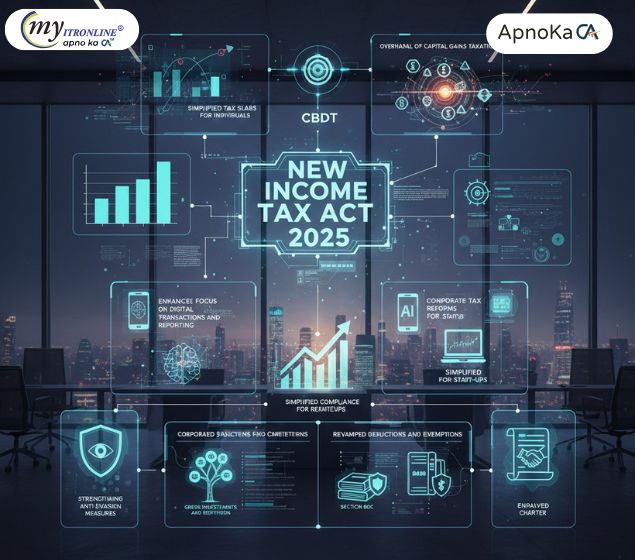
New Income Tax Act 2025: Key Updates from the CBDT
The Central Board of Direct Taxes (CBDT) has announced a significant overhaul of the Income Tax Act, effective from assessment year 2025-26. This blog details the crucial changes, including simplified individual tax slabs, revised capital gains taxation, a stronger focus on digital transactions, corporate tax reforms, revamped deductions and exemptions, enhanced anti-evasion measures, and the introduction of a Taxpayer Charter. Understanding these updates is vital for both individuals and corporations to ensure compliance and optimize financial planning under the new regime.

Income Tax in India: Are You Prepared for July 2025?
This blog post provides a comprehensive overview of the significant income tax changes coming into effect in India from July 1, 2025. It details the more attractive new tax regime with revised slabs and increased deductions, the extended ITR filing deadline, the mandate for Aadhaar in PAN applications, and the real-time PAN-bank linking system. Furthermore, it touches upon the updated ITR forms and the broader proposals of the Income Tax Bill 2025, offering taxpayers crucial insights for compliance and effective tax planning.

Easier Reporting: GSTR-7 and GSTR-8 Forms Get Updated!
This blog explains the significant updates to GSTR-7 (TDS) and GSTR-8 (TCS) forms, effective February 11, 2025, aimed at enhancing transaction data detail. It covers the 'why' behind these changes, the expected new reporting requirements (with a crucial note on the GSTR-7 invoice-wise reporting deferment), who is affected, and actionable steps for businesses to prepare for smoother GST compliance and reconciliation.
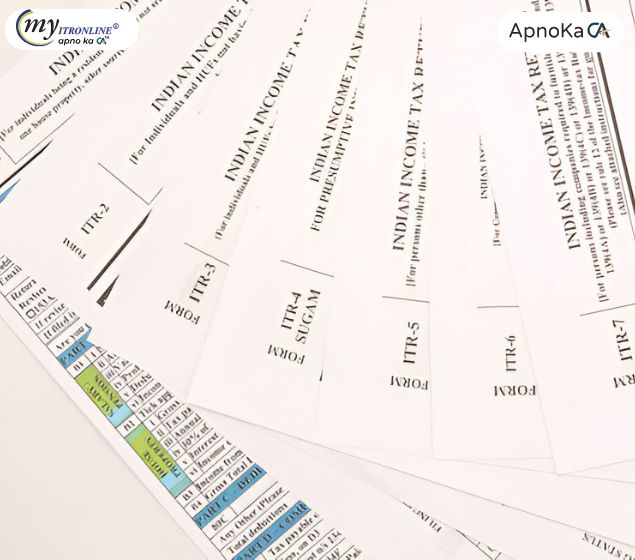
Understanding ITR Forms (ITR-1 to ITR-7) for AY 2025-26: Selecting the Appropriate Form for Your Earnings
This blog post serves as a comprehensive guide to selecting the correct Income Tax Return (ITR) form (ITR-1 to ITR-7) for Assessment Year 2025-26 (Financial Year 2024-25). It begins by emphasizing the importance of choosing the right form to avoid penalties and highlights the extended filing deadline for individuals and HUFs. The post then details important updates for AY 2025-26, including changes to LTCG reporting in ITR-1/4, compulsory detailed disclosures for old regime deductions, new TDS section requirements, revised asset reporting thresholds, and the default new tax regime. A simplified overview of applicability and exclusions for each ITR form (ITR-1 to ITR-7) is provided. Finally, it uses seven practical case studies to illustrate how different taxpayer profiles (salaried, freelancers, businesses, firms, companies, trusts) can correctly identify their applicable ITR form. The synopsis concludes by advising readers to consult official guidelines and tax professionals for accurate filing.

EPFO’s New Rules in 2025: 4 Game-Changing Updates
In 2025, EPFO rolled out 4 major reforms to modernize and simplify the Provident Fund system. These include a digital joint declaration system, simplified profile updates, auto PF transfers, and centralized pension payments. Learn how these changes benefit both employees and pensioners.

Tax Alerts: 9 Essential Updates to ITR-1, ITR-2, ITR-3, ITR-4 for FY 2024-25
The Income Tax Department has notified updated ITR forms (ITR-1, ITR-2, ITR-3, ITR-4) for FY 2024-25 (AY 2025-26) incorporating several crucial changes. This blog details 9 important adjustments, including relaxed eligibility for ITR-1/ITR-4, mandatory TDS section reporting, removal of Aadhaar Enrolment ID acceptance, detailed disclosures for tax regime options, bifurcated capital gains reporting, new treatment for buyback proceeds, raised asset reporting threshold, additional requirement for disability deductions, and streamlined capital gains sections, all aimed at ensuring accurate and compliant tax filing.
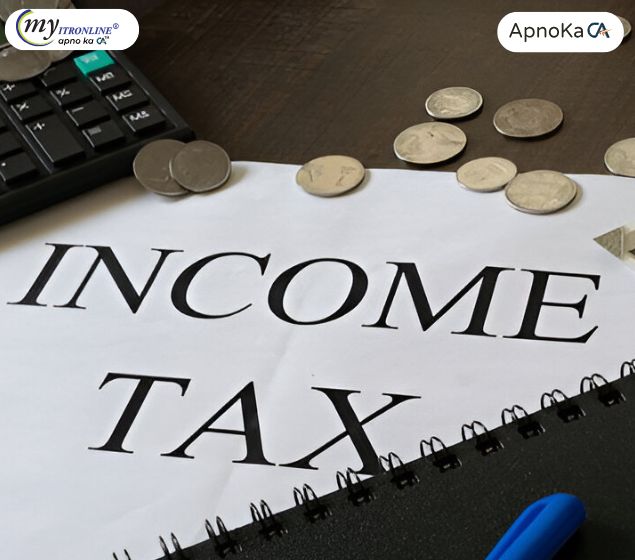
CBDT Notifies ITR Forms 1-7 for AY 2025-26 (FY 2024-25): What Taxpayers Need to Know
The CBDT has notified the ITR forms (1-7) for AY 2025-26, incorporating changes from the Finance Act, 2024. This blog provides a comprehensive overview of the key modifications in each form, focusing on changes in capital gains reporting, eligibility criteria, deduction disclosures, and other compliance requirements to help taxpayers prepare for the upcoming filing season.
